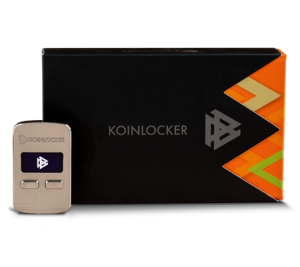If you’ve been following crypto market activities, you must have definitely heard of the regulation reports and how the Securities and Exchange Commission (SEC) is demanding for exchanges to be regulated. This has led to the commission introducing new policies that all exchanges must adhere to. As a result, most exchanges that have failed to comply with the new policies have been forcefully closed down. On the other side of things, exchange hacks have been on the rise, recently CoinCheck was hacked, with over $500 million worth of tokens stolen. This is just one of many large exchange hacks that have transpired over the last few months.
The uncertainty about cryptocurrency regulation and the rise of exchanges getting hacked has prompted experts to advocate for the storage of cryptos more securely outside of exchanges in cryptocurrency hardware wallets.
But what are cryptocurrency hardware wallets and how are they different from other cryptocurrency wallets?
There are 4 major types of cryptocurrency wallets:
1. Custodial wallet:
Custodial wallets are offered by cryptocurrency exchanges from where you purchase your bitcoins. The cryptocurrency exchanges maintain users’ Bitcoins in a secure storage and provide a dashboard for the user to check on their balance as and when required. It is the easiest way to store your bitcoins, but the drawback is that the private key is stored in the exchange. Hence you are not really the owner of your cryptocurrency. These exchanges also become honeypot for hackers. Just to quote an example, the Mt.gox exchange of Tokyo was hacked in 2014 and $340 Million worth Bitcoins were stolen. As a result, people who had their cryptocurrency stored in the exchange lost their cryptocurrency to the hackers.
2. Hot Wallet – Web/ Mobile wallet:
A web or mobile wallet uses a combination of a website and an app on your computer or mobile phone to store your cryptocurrency. These wallets store the cryptocurrency (private keys) locally on your computer or mobile device and use the internet for authentication. While these wallets are more secure than custodial wallets, because your computer or smartphone are multipurpose devices with multiple touch points to the internet, it is still possible for hackers to use malware to gain access to your computer and then steal your cryptocurrency. It is also possible to lose your cryptocurrency in case of device loss or failure.
3. Cold Wallet – Paper wallet:
A Paper wallet is a physical document that contains the public key & the private key. Paper wallets are often printed in a form of QR-codes so that you can quickly scan them and use the key during a transaction. A paper wallet can be generated using services like BitAddress or Bitcoinpaperwallet. The generated document can then be printed, in a tamper-resistant design & stored in a safe place. The main advantage of a paper wallet is that the keys are not stored digitally & it cannot be hacked. The disadvantage of paper wallets are that they can get lost or damaged and need to be physically carried around when they need to be used. Managing and organising different types of cryptocurrencies in paper wallets can also be tedious.
4. Hardware Wallet:
A cryptocurrency hardware wallet is a physical device that is designed for the sole purpose of storing your private keys & cryptocurrencies safely, while giving the user easy access to their bitcoins & cryptocurrencies. These wallets have been described as special purpose computing devices for storing Bitcoins and private keys offline. They offer an easy way to get crypto off the device for spending or transferring. The basic functions of these hardware wallets are:
- To generate a new private key, offline and within the device to receive cryptocurrencies.
- To display the corresponding public key to allow bitcoins to be sent to the device.
- To display balances of the cryptocurrencies that are held on the device.
These hardware wallets are more secure than other wallets because:
- They hold the private keys in their internal storage and completely offline, offering a cold storage service.
- They are immune to most computer viruses.
- They are capable of hosting more than one cryptocurrency.
- They never expose your private keys to the outside world.
- They require users to confirm all transactions on their device, thus, making them more secure.
- They offer easy recovery mechanisms using recovery seeds in case you lose the hardware wallet.

While there are a number of hardware available in today, there is still scope for improvement in terms of security & ease of use, and this inspired us to develop “Koinlocker” – the smarter hardware wallet. This wallet has been designed with additional security features and to make usage easier.
The Koinlocker hardware wallet is designed with a “FloLockTM” technology. This unique communication protocol facilitates isolated, direct and encrypted communication between the Koinlocker device and the server thus, ensuring absolutely secure data transfers.
Koinlocker also features the “TrueHDWalletTM” standard. This ensures future compatibility and the maintenance of high-security standards. Which means, Koinlocker adheres 100% to open Bitcoin Improvement Proposal (BIP) number 32, 39 and 44 making Koinlocker compatible with other wallets who also follow this standard.
The Koinlocker hardware wallet and support systems have been designed to protect personal anonymity. When transactions are carried out, all personal information and transaction details are kept anonymous.
Finally, as technically sophisticated as the Koinlocker hardware wallet is, it is just as aesthetic pleasing to hold and easy to use offering an amazing user experience.
To find out more about Koinlocker and how you can get yours, click here.



